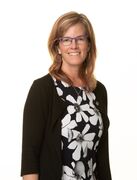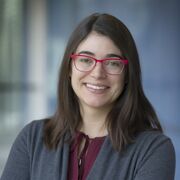Dr. Karen Kidd (McMaster University), Dr. Eden Hataley (University of Toronto, Dr. Rebecca Rooney (University of Waterloo)
Summary
Plastic pollution has been detected in all five of the Great Lakes, with mounting evidence of its harmful ecological, human health, and socioeconomic impacts. Yet, the issue is not currently addressed in the Canadian and U.S. governments’ triennial State of the Great Lakes reports under the Great Lakes Water Quality Agreement.
In this webinar, Dr. Karen Kidd (McMaster University), Dr. Eden Hataley (University of Toronto), and Dr. Rebecca Rooney (University of Waterloo) will share findings from the International Joint Commission’s Great Lakes Science Advisory Board project: Monitoring, Ecological Risk Assessment, and Management of Microplastics in the Laurentian Great Lakes. The project synthesized recent advances in plastics science, developed a framework for monitoring microplastics as a potential sub-indicator for Great Lakes health, and created a risk assessment framework focused on ecological impacts.
While this work is focused on the Great Lakes, it has important relevance for the Lake of the Woods watershed, where microplastics are an emerging concern. The frameworks and lessons learned from the Great Lakes can help guide monitoring, risk assessment, and management approaches across our own watershed, ensuring we remain proactive in addressing this growing issue.
We hope you’ll join us for this one-hour session, and as always, come prepared with your questions and reflections. Please note: this webinar will be recorded and made available afterward on the LOWWSF website.
About the Presenters:
 Dr. Karen Kidd is the Jarislowsky Chair in Environment and Health and a Professor in the Department of Biology at McMaster University. She moved to McMaster in 2017 after 14 years at the University of New Brunswick as a Canada Research Chair in Chemical Contamination of Food Webs. Karen is an ecotoxicologist and her group studies the effects of forestry, agriculture, aquaculture and municipal wastewaters on aquatic ecosystems, and the accumulation of contaminants in freshwater food webs. More information can be found at www.karenkiddlab.com
Dr. Karen Kidd is the Jarislowsky Chair in Environment and Health and a Professor in the Department of Biology at McMaster University. She moved to McMaster in 2017 after 14 years at the University of New Brunswick as a Canada Research Chair in Chemical Contamination of Food Webs. Karen is an ecotoxicologist and her group studies the effects of forestry, agriculture, aquaculture and municipal wastewaters on aquatic ecosystems, and the accumulation of contaminants in freshwater food webs. More information can be found at www.karenkiddlab.com
 Dr. Eden Hataley recently completed a Ph.D. in environmental science at the University of Toronto Scarborough, where her research used a transdisciplinary approach to advance understanding of plastic pollution management in the Laurentian Great Lakes. Prior to her doctoral studies, Eden earned a master’s degree in environmental studies and a bachelor’s degree in environmental chemistry, both from Queen’s University. She is passionate about transboundary water governance and remains committed to working with diverse stakeholders to address complex environmental challenges.
Dr. Eden Hataley recently completed a Ph.D. in environmental science at the University of Toronto Scarborough, where her research used a transdisciplinary approach to advance understanding of plastic pollution management in the Laurentian Great Lakes. Prior to her doctoral studies, Eden earned a master’s degree in environmental studies and a bachelor’s degree in environmental chemistry, both from Queen’s University. She is passionate about transboundary water governance and remains committed to working with diverse stakeholders to address complex environmental challenges.
 Dr. Rebecca Rooney carries out research in wetland ecology and is a world expert on biomonitoring and wetland assessment. Rebecca examines how human-caused and natural ecological disturbances influence wetland communities, including birds, invertebrates and plants. She tackles fundamental questions around how communities assemble and what defines them, including the relative importance of biological interactions, environmental conditions, and landscape factors. She is keenly interested in the role of rare species and novelty in ecological processes.
Dr. Rebecca Rooney carries out research in wetland ecology and is a world expert on biomonitoring and wetland assessment. Rebecca examines how human-caused and natural ecological disturbances influence wetland communities, including birds, invertebrates and plants. She tackles fundamental questions around how communities assemble and what defines them, including the relative importance of biological interactions, environmental conditions, and landscape factors. She is keenly interested in the role of rare species and novelty in ecological processes.
Her research supports the implementation of wetland policy, invasive species management, and the protection of species at risk. Her results improve the design of restored and reclaimed wetlands, provide tools for evaluating their integrity, and identify the most successful techniques for invasive species control.
